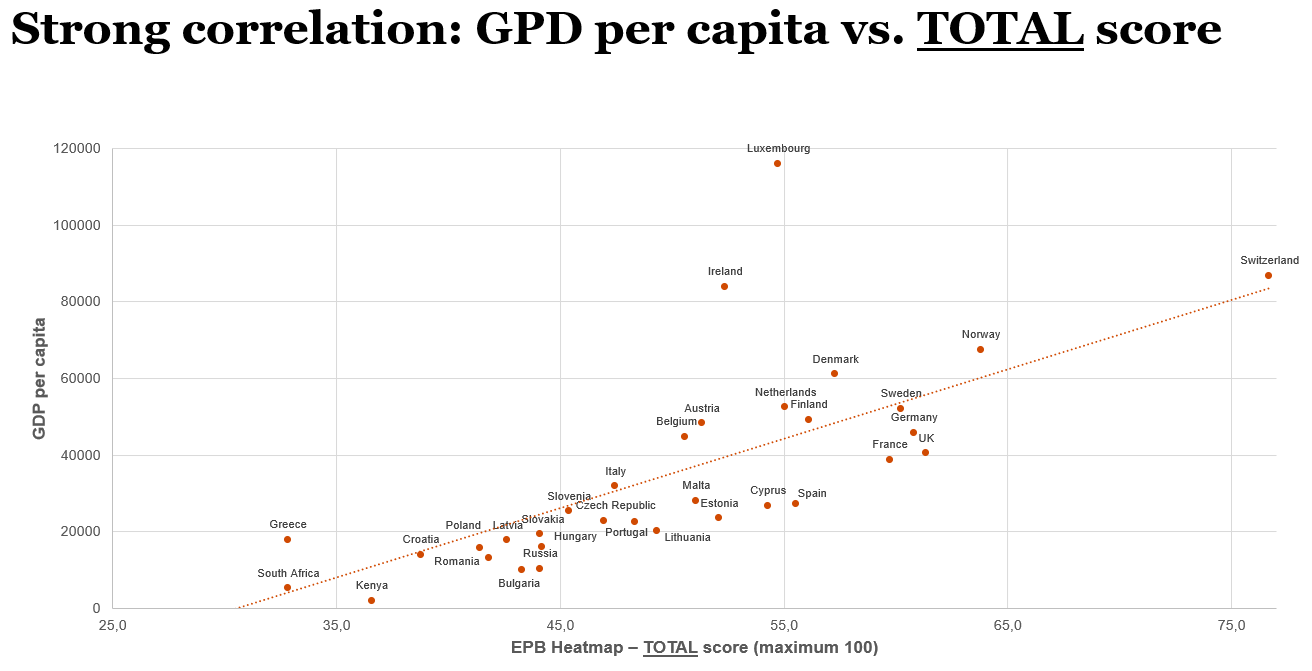If a private business doesn’t like the policy environment or business conditions in its home country, what can it do about it? The usual answer is “not very much”. While a large corporation might simply be able to move its operations elsewhere, that luxury isn’t available to most private businesses. The effect? Like it or not, they’re caught in their local market ecosystem.
But that’s just one of the factors that differentiate private businesses. Another – far more positive – one is that worldwide, they’re the main driving force behind GDP growth and job creation. As a result, they play a major role not only in economic prosperity but also social prosperity. However, this significant contribution can go largely unnoticed – and may not be appropriately reflected in local policy decisions.
All of this means there can be a sizable mismatch between the importance of private businesses and how they’re perceived and catered for. It’s a gap that crops up frequently in my conversations with private businesses – and which both PwC and our clients believe should be addressed as a matter of urgency.
But how? In our view, what’s needed is a robust, trustworthy and independent benchmark for comparing the private business regimes across the EMEA region. A tool enabling stakeholders – business associations, politicians, policymakers, and of course private business owners and leaders – to identify and take co-ordinated action on the areas where their country could do more to foster the potential of private businesses.
How PwC’s EMEA Private Business Heatmap works
Creating such a benchmark was a challenge that we at PwC decided to accept. Our purpose is to build trust in society and solve important problems – and by tackling this issue we knew we could achieve both goals.
So we put our heads together and we soon came up with the solution: our EMEA Private Business Heatmap – an information source that uses a number of metrics ranks 34 EMEA jurisdictions as places to set up and grow a private business. The rankings are based on scores across 37 metrics divided into seven different categories. We use credible, publicly available sources that measure tangible, on-the-ground activity in each country, both quantitatively and qualitatively.
Our seven categories capture all the key factors that shape any jurisdiction’s attractiveness to private businesses. They are:
- Macroeconomics
- Private business landscape
- Tax and regulatory environment
- Environmental, social and governance (ESG)
- Public health
- Education, skills and talent
- Technology infrastructure
We’ve balanced and weighted these categories to reflect their relative importance to private businesses based on feedback received from our clients. Creating the Heatmap isn’t just a one-off exercise: having launched it this year, we’re planning to re-run it in 2022 – which will enable us to start showing year-on-year tracking of the data and changes over time in the different jurisdictions.
Size is not all – and private business environments correlate to GDP per capita
So, what does PwC’s first EMEA Private Business (EPB) Heatmap tell us? Of the 34 jurisdictions covered, five score more than 60 out of 100 to achieve a ‘leading’ ranking: Switzerland, Norway, the United Kingdom (UK), Germany and Sweden. These countries tend to score consistently well, mostly appearing in the top third across five or six of the categories. A further 12 countries earn an ‘advancing’ ranking with an overall score of at least 50 out of 100. This includes France, who is less than a point away from being rated ‘leading’. 12 countries are ‘developing’, with a score of between 40 and 50 out of 100, and five ‘emerging’, with a score of less than 40.
Individual country scores aside, some of the most interesting insights come from looking across the rankings. One clear message is that being a good location for private businesses isn’t a matter of size, but focus. The highest-ranking countries in our Heatmap include not only large players like the UK and Germany, but also smaller nations such as those in the Nordics. So being more competitive in this area is not about being bigger. It's about attention, commitment and concrete actions to support the private business ecosystem.

Figure 1: GDP per capita versus PwC EPB Heatmap score
We can glean further valuable insights by mapping our Heatmap rankings to economic statistics. For example, as Figure 1 shows, a country’s GDP per capita correlates closely with its attractiveness to private businesses. While there are some outliers – notably Switzerland, Ireland and Luxembourg – all three of these countries have country-specific traits that push up their GDP per head. The implication? Having local policies that help private businesses flourish and grow makes a notable contribution to a thriving national economy.
Looking forward: helping policymakers to close the gaps
This insight brings us directly to one of the key goals of the EPB Heatmap: helping governments and policymakers identify policy areas that impact private businesses and can be improved. By addressing these areas they can help to create better conditions for private businesses to prosper and expand, translating into greater prosperity and wellbeing for all of their citizens. Looking at Figure 1, the potential benefits are greatest for the countries below the dotted line, which have major opportunities to boost economic and social development by increasing their attractiveness to private businesses.
This is why we at PwC believe our EPB Heatmap is such a powerful asset – not only for private businesses themselves, but also for countries across EMEA. In a forthcoming series of blogs, we’ll take a closer look at some of the key metrics that the EPB Heatmap tracks. Stay tuned!












